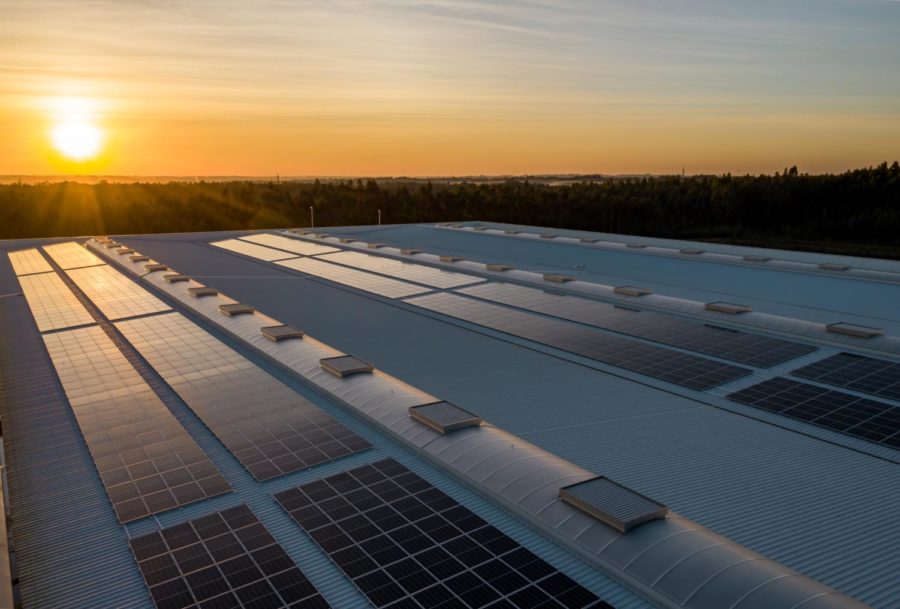Climate group discusses city environmental initiatives
The Ames Climate Action Team was created by community members in 2018.
The Ames Climate Action Team discussed the Climate Action Plan’s budget, community outreach and waste mitigation during their meeting Monday evening.
The Ames Climate Action Team is a grassroots organization created in 2018 that aims to create a resilient and equitable future for Ames while mitigating and adapting to climate change, according to the website. Erv Klaas, a former Iowa State professor in animal ecology and a member of the climate action team, was a key player in getting the group organized in 2018.
“I was concerned about [the] climate, so I reached out to a lot of churches in town […] and invited them to come to the meeting, and we had about 90 people show up,” Klaas said. “At the end of that, they all said we needed to continue, so we formed this ACAT group.”
Lee Anne Willson, a former university professor at Iowa State in physics and astronomy and a member of the action team, shared a presentation analyzing the cost of Ames’ Climate Action Plan.
“That $2.4 billion has to do with everything that would happen in Ames,” Willson said. “You go out and buy an electric car, that’s part of it. I go in and replace my air conditioner with a heat pump, that’s part of it. My neighbor put solar panels on, that’s part of it. The people down the street add insulation, that’s part of it. So, a lot of it is just citizens and businesses making choices that push things in the direction.”’
Willson said the $2.4 billion price tag on the action plan is 1.3% of the Ames 2020 GDP, adding that the net cost to the city is about 3% of their annual budget.
“The [net cost] estimates keep going down because of things that have been happening [such as] new sources of funding or higher energy prices, meaning the savings are bigger,” Willson said.
Klaas said the group was created to educate the community about climate change.
“Climate change is the most important issue we have in the whole world,” Klaas said.
The group also discussed waste mitigation, which Willson said could be mitigated through implementing recycling programs.
“For background, the city […] burns some of our garbage and produces electricity, but in order to do that, it needs to use 90% gas 10% garbage to produce the electricity, so it’s a lot of natural gas getting burned,” Willson said.
Willson said the incinerators exist because the Ames community needs a way to dispose of waste.
“If we didn’t have the trash, we wouldn’t need the incinerators,” Willson said.
Jeri Neal, a former administrator for Iowa State’s Leopold Center for Sustainable Agriculture and a member of the climate action team, said because of the team’s approach, they have been able to hold relatively regular meetings with county and city leadership.
“We’re a group of engaged citizens who have kind of inserted ourselves as much as we can into the city processes with the singular goal of raising the priority of climate action and climate planning for the city,” Neal said.
Within the action team, there are four separate climate action teams, referred to as climate action teams one through four. Their responsibilities are as follows:
- Climate action team one focuses on local engagement.
- Climate action team two focuses on education.
- Climate action team three focuses on state and federal level involvement.
- Climate action team four was created to help build a coalition and support the progress of the larger group.
Willson said team one aims to host community conversations as opposed to lectures.
“They’re not sessions where we try to tell people stuff– we send them some questions, they pick which questions they want to answer and we have a conversation,” Willson said. ”It’s done really well with a wide variety of people, and we’ve learned a lot in doing that.”
Sustainapalooza
The Ames Climate Action Team will have a table set up during Iowa State’s Sustainapalooza at 5 p.m. Tuesday in the Memorial Union’s Great Hall, South Ballroom, Oak Room and Sun Room.
Neal said she hopes ideas on how to better foster the relationship between Iowa State and the city in regard to climate-related issues will be shared with the action team during the event.
“Maybe somebody is going to have some ideas […] about how we can do a better job of working back and forth together between the different faculty and the different students and the problems that are happening in the city,” Neal said.
Community members interested in joining the Ames Climate Action Team can reach out to them by email, amesclimateactionteam@gmail.com . Their next meeting will be March 13 and is tentatively set to be hosted on Zoom.
Your donation will support the student journalists of the Iowa State Daily. Your contribution will allow us to purchase equipment, send our student journalists to conferences and off-set their cost of living so they can continue to do best-in-the-nation work at the Iowa State Daily.











